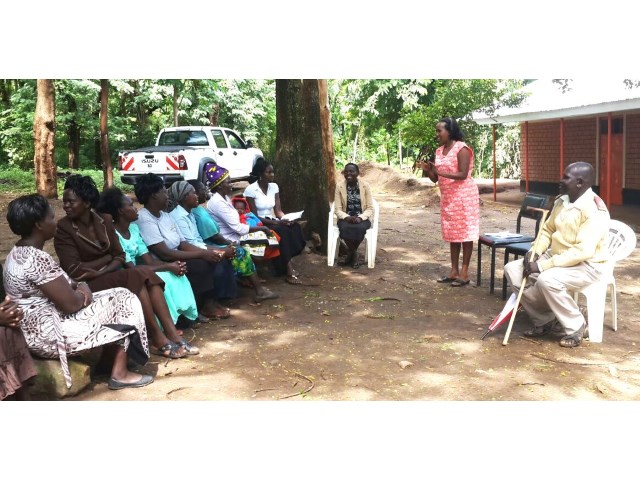 Outcome 1.1: The capacity of member states and IGAD staff in the use of land governance systems.
Outcome 1.1: The capacity of member states and IGAD staff in the use of land governance systems.
Over the years, the Secretariat of IGAD and its staff have acquired the necessary skills in methods and techniques crucial for promoting regional cooperation. These include guiding processes for formulating policies, concepts, negotiations, concluding agreements, organization and facilitation of workshops, regional project cycle management, etc. However, deliberate efforts are required to transfer these skills to relevant/concerned persons in the IGAD member states – so that they can act as catalysts in these fields thereafter. At the same time, the capacity of the IGAD Secretariat and the skills of its staff will be enhanced to efficiently and effectively carry out their responsibilities. Hence, the capacity of member states and IGAD staff in the use of land governance systems, crucial for promoting regional cooperation, will be built; and so will their capacities to put in place suitable incentive measures and appropriate fiscal regimes. The latter is necessary because throughout the IGAD region, policymakers often provide inadequate budgetary provisions for land governance.
Outcome 1.2: A Centre of Excellence in land governance established and training courses formulated.
Like the case has been with other fields such as health, water and agriculture, a Regional Centre of Excellence on Land Governance should be established to serve the people of IGAD member states, to educate and conduct relevant research related to land governance; train officials in land governance in all members states (capacity building); realize economic benefits from controlling and/or eradicating land disputes; and leverage combined resources to seek international partners, such as education and research institutions and financing firms. This will be implemented in collaboration with the SLGA program of the Africa Land Policy Centre.
Outcome 1.3: Suitable incentives and disincentives measures to complement regulatory enforcement identified.
In most IGAD countries, the revenues that governments receive from the governance of land are based on arbitrary ‘royalty’ figure or percentage. The amounts paid to governments are often nowhere near the true economic values of land. Furthermore, the sharing of even the modest amount that is received by the government with the communities where the land is, is almost non-existent, or sub-optimal, indicating very low level of governance of land.
While the IGAD member states have developed fairly comprehensive laws and regulations governing land, conflicts still occur due to the limited awareness of such laws. Therefore, there is urgent need to identify suitable incentives and disincentives measures to raise awareness.
Outcome 1.4: A more focused forum targeting the involvement of civil society organizations and non-state actors in land governance should be established.
The capacity of the member states and the IGAD Secretariat will be further enhanced through the involvement of civil society organizations (CSOs) and the private sector. CSOs have an important role to play in land governance. For example, many CSOs especially national non-governmental organizations (NGOs) and community-based organizations (CBOs) are found at the grassroots levels and have strong ties with rural communities. Many are involved in the implementation of land governance activities at the local levels. Some of the CSOs are able to solicit funds from external sources for interventions. It is based on these comparative advantages that the IGAD Regional Strategy of 2016-2020 stated that: civil society organisations and non-state actors will be given a bigger role to play in the IGAD development initiatives. To this end, an IGAD CSO and NGO Forum has been established in line with the Khartoum Declaration of the Heads of State and Governments in2004. The IGAD CSO and NGO umbrella forum covers a wide area embracing all the strategic interventions of the IGAD. There is, therefore, a need to establish a more focused platform targeting land governance.

